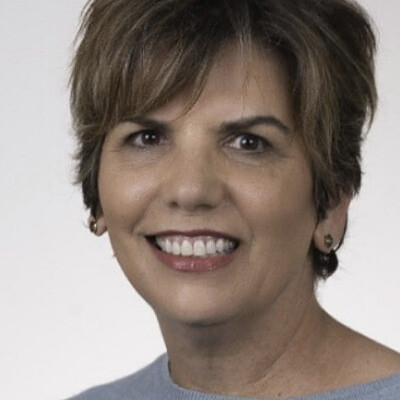This Lightning Talk will review a newly developed educational tool called Figment Mentor under development at MUSC. Students select and create an interprofessional colleague avatar and ask interview questions to learn more about different professions and how their own profession participates in collaborative practice. The system uses a large language AI model to respond to students’ interview questions. Figment Mentor was used in assignments in two different interprofessional courses. Approximately 200 interprofessional students were enrolled in these courses and completed the assignment. The purpose of the assignment was two-fold 1) to expand what students know about their own profession and that of another profession with whom that they may collaborate and 2) to give students an opportunity to use and evaluate an AI-based based interview tool. The Figment Mentor assignment was designed to meet three learning objectives: 1) enhance knowledge of the roles of other professionals on a team, 2) appreciate the importance of interprofessional teamwork, and 3) identify strategies for continuous learning about the roles of other professionals. Students were provided sample questions in different topics (background, trends, insights, advice, accuracy) as well as follow-up questions similar to what questions would be asked in a “live” interview with an in-person professional. Students were then asked to respond to four reflection questions about the assignment and the use of an AI-generated professional.
The course directors also used Generative AI to assist with the evaluation of this new assignment and students use of a GenAI tool. Student responses to the reflection questions were loaded into ChatGPT to analyze for themes and counts of negative and positive responses to the assignment. The course directors and MUSC Office of Interprofessional Initiatives faculty reviewed the ChatGPT analysis. A traditional thematic analysis was also conducted by the course directors and faculty.
The overall consensus of students and faculty is that Figment Mentor can be used successfully as an alternative educational tool. Students’ overall reflections were positive. They concluded that use of Figment Mentor was beneficial to learn about other professions who may be unavailable for a live, in-person interview for a variety of reasons. Several lessons were learned by the OII faculty when using GenAI to conduct a thematic analysis of the students’ responses. Primarily, the prompt used to request the thematic analysis, the upload and format of the student responses, and format of ChatGPT’s response and count of responses.
In support of improving patient care, this activity is planned and implemented by The National Center for Interprofessional Practice and Education Office of Interprofessional Continuing Professional Development (National Center OICPD). The National Center OICPD is accredited by the Accreditation Council for Continuing Medical Education (ACCME), the Accreditation Council for Pharmacy Education (ACPE), and the American Nurses Credentialing Center (ANCC) to provide continuing education for the healthcare team.
As a Jointly Accredited Provider, the National Center is approved to offer social work continuing education by the Association of Social Work Boards (ASWB) Approved Continuing Education (ACE) program. Organizations, not individual courses, are approved under this program. State and provincial regulatory boards have the final authority to determine whether an individual course may be accepted for continuing education credit. The National Center maintains responsibility for this course. Social workers completing this course receive continuing education credits.
The National Center OICPD (JA#: 4008105) is approved by the Board of Certification, Inc. to provide continuing education to Athletic Trainers (ATs).
This activity was planned by and for the healthcare team, and learners will receive Interprofessional Continuing Education (IPCE) credit for learning and change.


Physicians: The National Center for Interprofessional Practice and Education designates this live activity for AMA PRA Category 1 Credits™. Physicians should only claim credit commensurate with their participation.
Physician Assistants: The American Academy of Physician Assistants (AAPA) accepts credit from organizations accredited by the ACCME.
Nurses: Participants will be awarded contact hours of credit for attendance at this workshop.
Nurse Practitioners: The American Academy of Nurse Practitioners Certification Program (AANPCP) accepts credit from organizations accredited by the ACCME and ANCC.
Pharmacists and Pharmacy Technicians: This activity is approved for contact hours.
Athletic Trainers: This program is eligible for Category A hours/CEUs. ATs should claim only those hours actually spent in the educational program.
Social Workers: As a Jointly Accredited Organization, the National Center is approved to offer social work continuing education by the Association of Social Work Boards (ASWB) Approved Continuing Education (ACE) program. Organizations, not individual courses, are approved under this program. State and provincial regulatory boards have the final authority to determine whether an individual course may be accepted for continuing education credit. The National Center maintains responsibility for this course. Social workers completing this course receive continuing education credits.
IPCE: This activity was planned by and for the healthcare team, and learners will receive Interprofessional Continuing Education (IPCE) credits for learning and change.
Learners can claim CE credit by completing the Daily Evaluation.



